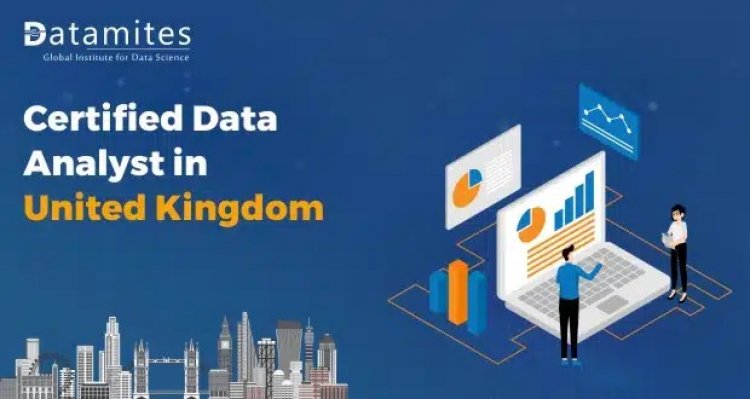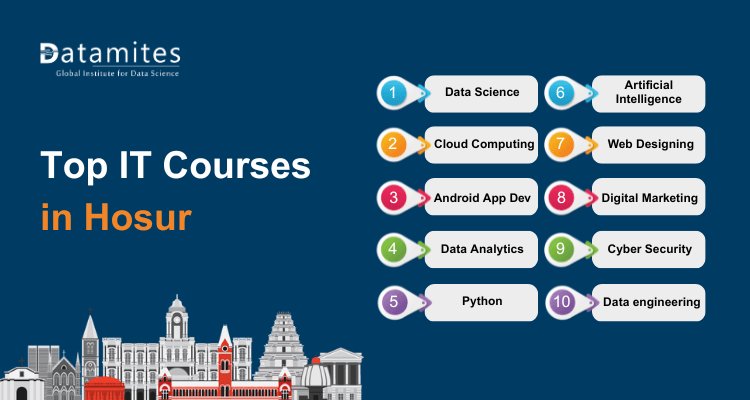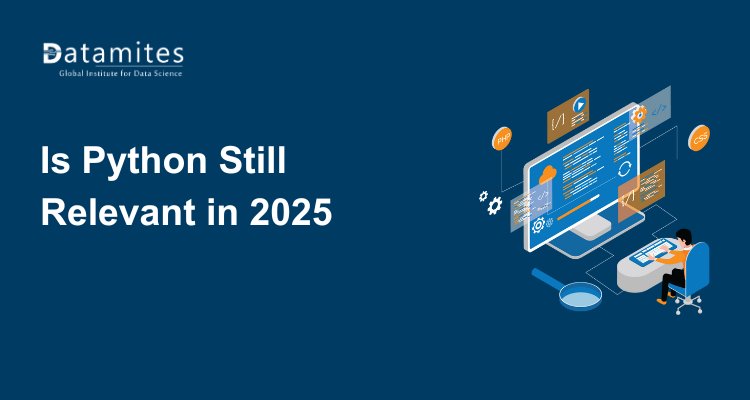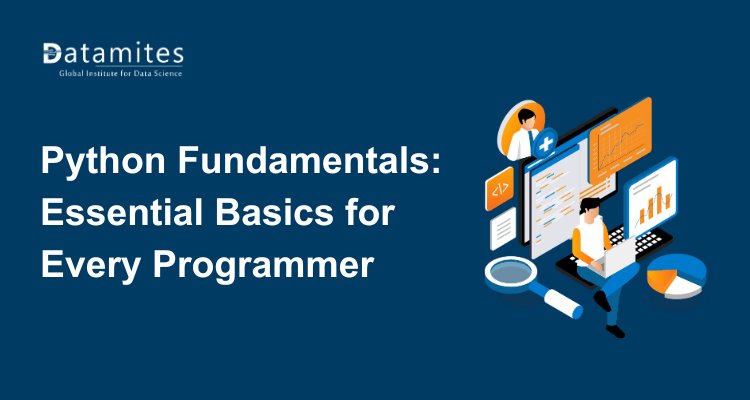How much is the Certified Data Analyst Course Fees in UK?

Data analytics is the practice of analyzing and interpreting vast amounts of data to discover significant patterns, draw meaningful conclusions, and make well-informed decisions. It entails employing statistical and quantitative methods, along with leveraging a range of tools and technologies, to extract valuable insights from data.
To meet data analytics demand, numerous training programs and certifications are available to individuals aspiring to pursue a career as a data analyst. In this discussion, we will explore the certified data analyst course fees in UK, providing you with a general overview of the cost range associated with such programs.
According to the Acumen research and consulting report, the market size of global data analytics was valued at USD 31.8 billion in 2021, and it is anticipated to expand significantly, reaching a market size of USD 329.8 billion by 2030. This growth is expected to occur at a compound annual growth rate (CAGR) of 29.9% from 2022 to 2030.
By understanding the investment required for a certified data analyst course in UK, individuals can make informed decisions about their career aspirations, financial planning, and the potential return on investment in terms of career advancement and earning potential in the field of data analysis.
How to become a data analyst in UK?
Becoming a data analyst in UK generally requires a combination of education, skills, and experience. Here are some steps that can help you become a data analyst in UK:
- Educational Qualification: Most data analyst positions in UK require a bachelor’s degree in a related field such as mathematics, statistics, computer science, or data science. Some employers may also accept degrees in fields such as economics, engineering, or physics. Most data analyst positions in UK require a bachelor’s degree in a related field such as mathematics, statistics, computer science, or data science, along with data analytics training in UK.
- Develop analytical and technical skills: Data analysts need to be proficient in tools and technologies used for data analysis such as Excel, SQL, Python, R, and data visualization software. Consider taking online courses or certifications to develop these skills.
- Gain relevant work experience: Many data analyst job postings in UK require 1-2 years of experience in a related field. You can gain experience by working in data-related roles such as data entry, data management, or reporting.
- Network and apply for jobs: Join professional organizations or attend industry events to network with other data analysts and potential employers. Search for data analyst job openings on online job boards, company websites, or through recruitment agencies.
- Communication Skills: Effective communication skills are essential for data analysts, as they are required to proficiently communicate complex technical concepts to both technical and non-technical stakeholders. Excellent written and verbal communication skills enable data analysts to present findings, explain data-driven insights, and collaborate with cross-functional teams, ensuring the effective utilization of data for decision-making and driving business outcomes.
- Live Project and Internship: Live projects and internships provide data analysts with hands-on experience to work on real-world data problems, collaborate with industry professionals, and apply their analytical skills in practical settings. These opportunities offer valuable learning experiences, networking opportunities, and a chance to demonstrate competence to potential employers.
- Certifications: Certifications for data analysts enhance credibility, demonstrate expertise to employers, and increase opportunities for career advancement in the field of data analytics.
- Resume Preparation: In preparing a resume for a data analyst role, it is important to highlight relevant skills such as data analysis, statistical modeling, and programming proficiency (e.g., Python, R). Additionally, showcasing experience in data manipulation, visualization, and problem-solving, along with any notable achievements, can help demonstrate the ability to derive insights from data effectively.
- Continuously update your skills: The field of data analysis is constantly evolving, so it’s essential to stay up-to-date with the latest technologies and techniques. Attend conferences, workshops, or take online courses to continue learning and developing your skills.
Overall, becoming a data analyst in UK requires a combination of education, skills, and experience. By following these steps, you can increase your chances of securing a data analyst role in UK and also get a high-paying job. Basically, the salary of a data analyst in UK ranges from GBP 28, 979 per year according to a PayScale report.
- The salary of a data analyst in Edinburgh ranges from GBP 35,013 per year according to a Glassdoor report.
- The salary of a data analyst in Glasgow ranges from GBP 47,500 per year according to a Total jobs report.
- The salary of a data analyst in Liverpool ranges from GBP 30,752 per year according to a Glassdoor report.
- The salary of a data analyst in London ranges from GBP 39,525 per year according to a Glassdoor report.
Refer these articles for more information:
- Data Analytics for the E-commerce Sector
- Data Analytics in Retail Industries
- Data Analytics Influencing the Educational Sector
What does a data analyst do?
To become a data analyst, individuals typically require a combination of technical skills, domain knowledge, and an analytical mindset, which can be acquired through data analytics training in UK. Such training programs can equip individuals with the necessary tools and techniques to excel in the field and pursue a successful career in data analysis.
Here are some key responsibilities and tasks typically performed by data analysts:
- Data Collection: Gathering relevant data from various sources such as databases, spreadsheets, and APIs.
- Data Cleaning and Preparation: Ensuring data accuracy and reliability by removing inconsistencies, duplicates, or errors. Transforming and organizing the data into a suitable format for analysis.
- Data Analysis: Applying statistical techniques, algorithms, and data mining methods to uncover patterns, relationships, and trends within the data. This involves utilizing tools and software to perform tasks like descriptive statistics, regression analysis, clustering, or predictive modeling.
- Data Visualization: Creating visual representations, such as charts, graphs, and dashboards, to effectively communicate findings and insights to stakeholders. Visualizations help in presenting complex data in a more understandable and actionable manner.
- Report Generation: Summarizing and documenting analysis results in comprehensive reports, highlighting key findings and recommendations based on the data insights. These reports often serve as a basis for decision-making by managers or executives.
The role of a data analyst requires strong analytical skills, proficiency in data manipulation and analysis tools (such as SQL, Python, R, or Excel), a solid understanding of statistics and data modeling, and effective communication skills to present findings to non-technical audiences.
Birmingham and Bristol are two cities in United kingdom that are also experiencing growth in the field of data analytics. Both cities have seen an increase in the number of companies and organizations investing in data analytics training courses in UK to gain insights and make data-driven decisions.
In Birmingham, there has been a significant increase in the number of job postings for data analyst roles. Many companies in the city are seeking candidates with strong analytical skills and proficiency in data manipulation and analysis tools such as SQL, Python, and R. In addition, there are several universities and training providers that are offering data analytics courses in Birmingham and programs to meet the growing demand for skilled professionals in the field.
Similarly, Bristol is home to a number of data analytics firms, start-ups, and research organizations, and there is a growing community of data analysts and data scientists in the city. As a result, there are many job opportunities for data analysts in Bristol, and candidates with strong analytical skills, statistical knowledge, and proficiency in data manipulation and analysis tools are in high demand.
Read the following articles:
- Certified Data Analyst Course Fee in Bangladesh
- Certified Data Analyst Course Fee in South Africa
- Certified Data Analyst Course Fee in Singapore
How is DataMites providing Certified Data Analyst Training in UK?
DataMites is a global training institute that offers data analytics training in UK.
DataMites offers Certified Data Analyst in UK as its premium course that No-code course, Excel, MySQL, PowerBI and Tableau. DataMites provides online certified data analyst courses in UK, and the course duration is a 4-month program along with 400 learning hours that include 20 hours of live-online training and 1 year of access to Elearning. The course has also received approval from IABAC, a global organization, which further enhances its reputation and industry acceptance. Upon completion of the course, participants receive a data analytics certification in UK from DataMites.
DataMites provides key features for Certified Data Analyst Course in UK as follows:
- Ashok Veda as an expert trainer,
- A specialised course curriculum,
- High-quality study materials,
- Internship opportunities,
- Case studies,
- 1 Client and 10 capstone projects
- Intensive live online training
- Resume Preparation
DataMites offers online data analytics course in UK and combines theoretical concepts with practical applications to help participants develop the necessary skills and knowledge to succeed in the field of data analytics.
Certified Data Analyst Course
How much is the Certified Data Analyst Course Fees in UK?
DataMites is a globally renowned training institute that offers various data analytics courses, including Certified Data Analyst Courses in UK. DataMites typically provides transparent and competitive pricing for its courses in UK. Generally, the course fees for data analysts in UK will range between GBP 1000 to GBP 1500.
DataMites aims to make its training programs accessible and affordable for aspiring data analysts by offering flexible payment options, instalment plans, or scholarships. At DataMites, the certified data analyst course fee in UK ranges from GBP 1140 and the students get the course at an affordable price of GBP 701 for live-online training. Similarly, the course fee for a blended course ranges from GBP 690 and the students get the course at a discount rate of GBP 418.
Refer the following articles:
- Certified Data Analyst Course Fee Nepal
- Certified Data Analyst Course Fee in Indonesia
- Certified Data Analyst Course Fee in Philippines
Summary:
Data analytics is increasingly in high demand in UK due to its crucial role in helping businesses make data-driven decisions and gain competitive advantages. With the growth of industries such as e-commerce, finance, healthcare, and marketing, there is a significant need for skilled data analysts who can extract insights from large datasets, perform advanced statistical analysis, and utilize machine learning techniques to drive business outcomes. The demand for data analytics professionals in United Kingdom is expected to continue growing as organizations recognize the value of leveraging data for strategic decision-making and innovation. To get the latest information for the course, join DataMites and get an in-depth learning experience.
Data Analyst vs Data Engineer







